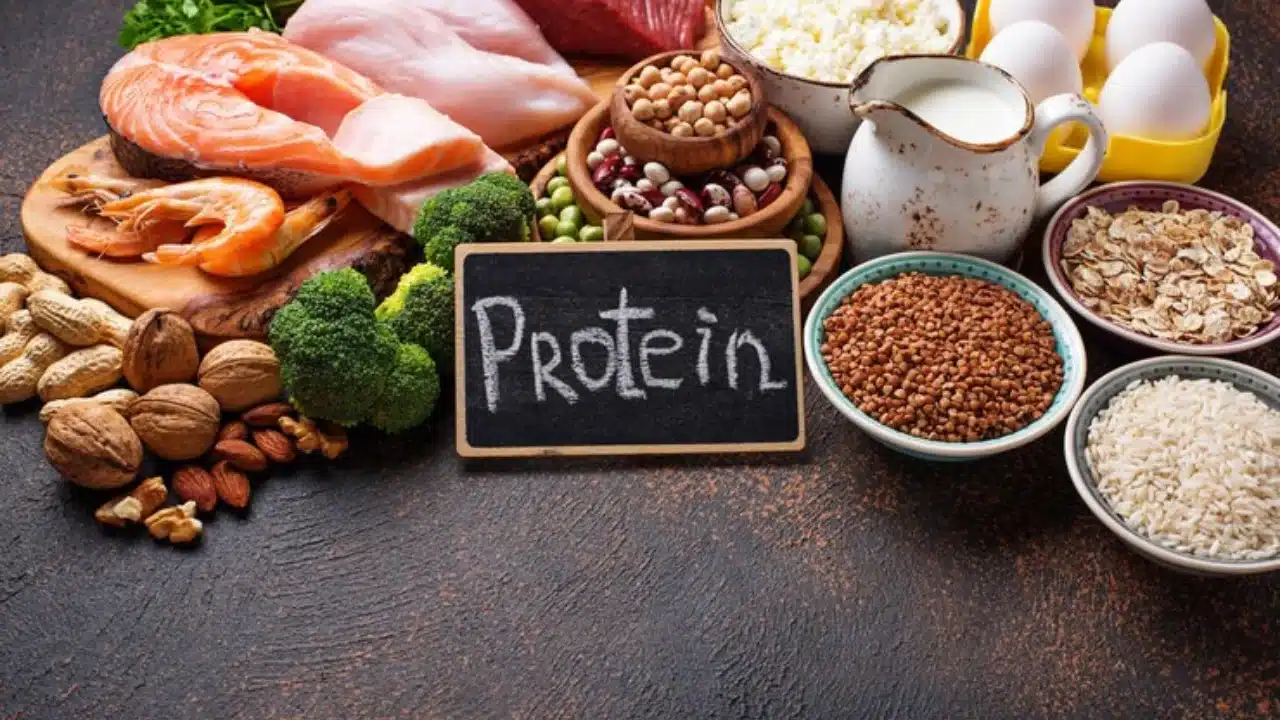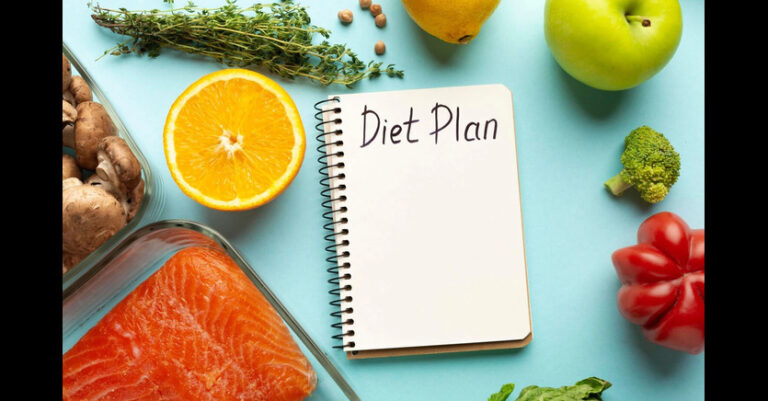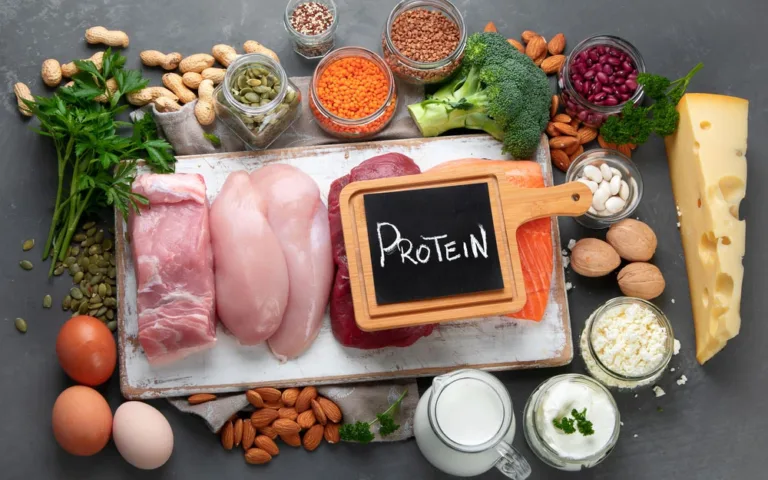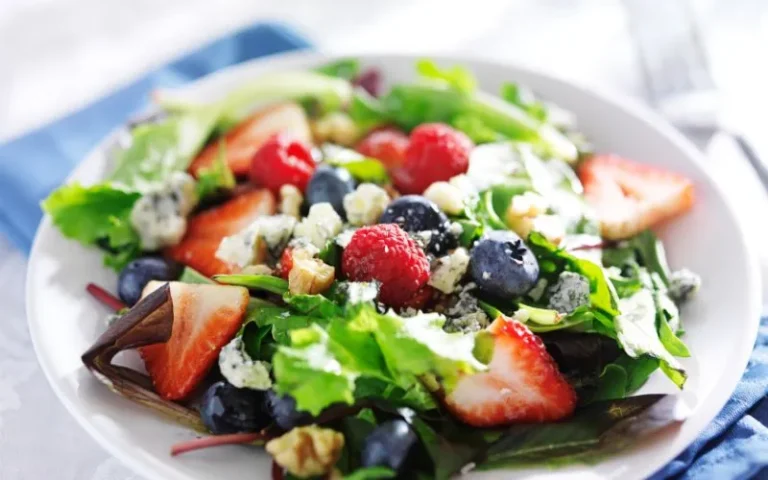You can spend hours at the gym, push through brutal sets, and follow every training plan out there but if your protein game is off, your muscles won’t grow the way you want. Muscle growth isn’t just about lifting; it’s about repair. And for that, your body needs one thing more than anything else: protein.
Think of your muscles like a broken-down fence after a storm. Every workout creates tiny tears. Protein? That’s your toolbox. Without enough of it, the repairs don’t happen and gains stall.
I’ve seen people train hard, stay consistent, and still not grow. Why? They miss the protein mark. So if you’re serious about building real muscle, not just getting sore and sweaty, keep reading. We’re breaking down exactly why protein matters, how it helps you grow, and how to get the right amount without overthinking every meal.
Learning About Muscle Growth and Protein
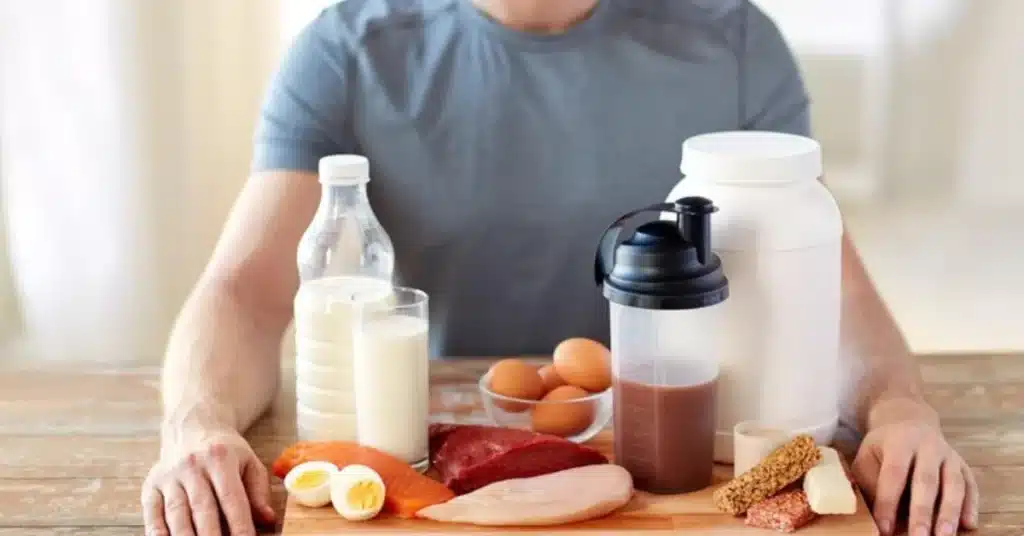
What Is Protein, and Why Does It Matter?
Protein is what your body uses to build and fix muscle. It’s made up of smaller parts called amino acids think of them like Lego blocks. When you eat protein, your body breaks it down into these blocks and uses them where needed, especially after a workout.
Your muscles go through a cycle of breaking down and rebuilding. Without enough protein, the rebuilding part falls short. That’s when progress slows, even if your workouts are solid.
The Science of Muscle Hypertrophy
Muscle growth also called hypertrophy happens when you put stress on your muscles through strength training. That stress causes small tears in the muscle fibers. It sounds bad, but it’s exactly what your body needs to grow stronger.
Here comes the good part: after the workout, your body goes to work repairing those tears. And the key material it uses for that job? Protein.
If your body doesn’t get enough of it, the repair process can’t keep up. That means less growth, more fatigue, and slower progress over time. So read on we’re just getting started on how to fuel your gains the right way.
Why Protein Is Essential for Muscle Development
You can train like a beast, but if your protein intake doesn’t match your effort, you’re leaving results on the table. Building muscle is like running a repair shop your body constantly breaks down and fixes tissue. Protein isn’t just helpful here it’s the main tool your body reaches for. And without it, progress stalls fast. So let’s break down five reasons why protein isn’t just part of the muscle-building process it is the process.
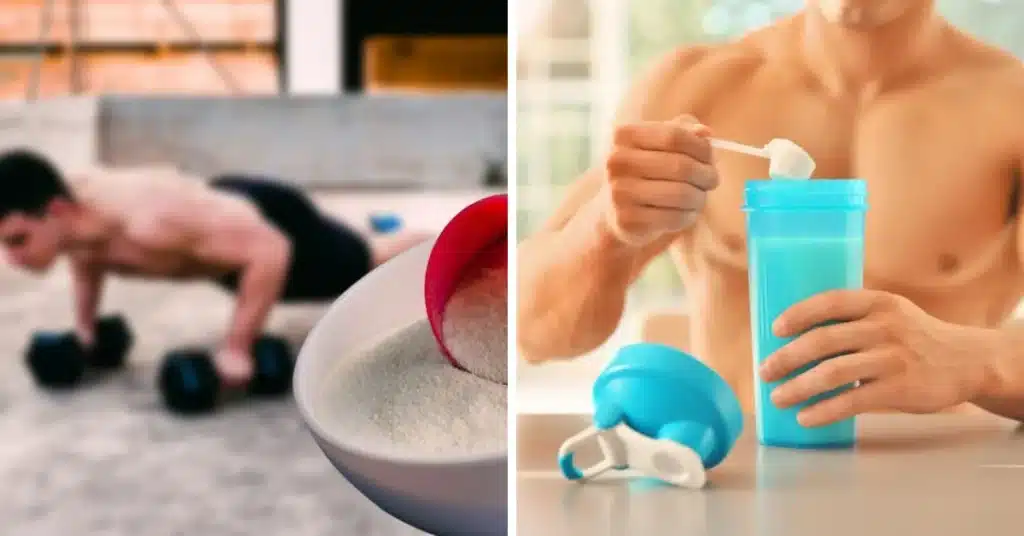
Protein Repairs Muscle After Exercise
Every time you lift, you’re creating small tears in your muscles. It’s normal, even necessary. But those tiny tears won’t fix themselves. Your body needs something solid to rebuild with and that something is protein.
Picture a cracked wall after a storm. Protein is both the contractor and the bricks. Without it, the damage stays. With enough, the wall comes back stronger. That’s how muscle growth works behind the scenes.
It Triggers Muscle Growth (Not Just Recovery)
Fixing damage is one thing. Growing new muscle is another. Here comes the good part: protein doesn’t just patch holes it tells your body to build bigger.
When you eat enough high-quality protein, your body starts muscle protein synthesis (MPS), the process that creates new muscle tissue. No signal, no growth. So even if you train hard, results lag without enough protein to kick that process into gear.
It Helps Prevent Muscle Loss Even During Fat Loss
Cutting calories? You’re likely dropping fat but your body might pull energy from your muscles too. That means you could shrink in the wrong places.
Protein helps protect your muscle when you’re in a calorie deficit. It sends a clear message: “Burn fat, not muscle.” That’s why lifters, athletes, and even casual gym-goers ramp up their protein when dieting. It keeps the hard-earned muscle intact while the fat drops.
It Keeps You Full and On Track
Protein fills you up better than carbs or fat. That might not sound like a muscle-building benefit but it is. Why? Because staying full keeps your eating clean and controlled.
When you’re not constantly hungry, you’re less likely to snack on junk or overeat. Whether you’re bulking or cutting, that control helps keep your gains lean and your fat low. A solid protein base sets the tone for smarter food choices overall.
It Supports Daily Recovery Even on Rest Days
Rest days don’t mean your muscles take the day off. They’re still recovering, adapting, and growing. But that growth still needs fuel.
Skipping protein on non-training days slows everything down. Muscle isn’t built during your workout it’s built between them. Consistent protein intake, even on off days, keeps the muscle-building engine running 24/7.
So read on now that you know why protein matters, let’s figure out how much you actually need to turn effort into visible gains.
How Much Protein Do You Really Need?
Let’s clear this up there’s no one-size-fits-all number. Your body, your workouts, and your goals all play a role in how much protein you need. Some people shoot too low and stall progress. Others go way overboard thinking more is always better. The truth? There’s a sweet spot and it’s probably different from what you’ve heard.
So read on we’re about to break it down in plain English.
The Simple Formula That Works for Most People
For muscle growth, most experts suggest 0.7 to 1 gram of protein per pound of body weight per day. If you weigh 160 pounds, aim for 110–160 grams daily. The lower end works for casual lifters. The higher end is better if you’re training hard and want visible growth.
Still confused? Try this: divide your daily protein target across 3–4 meals and snacks. That’s it. No calculators or spreadsheets needed.
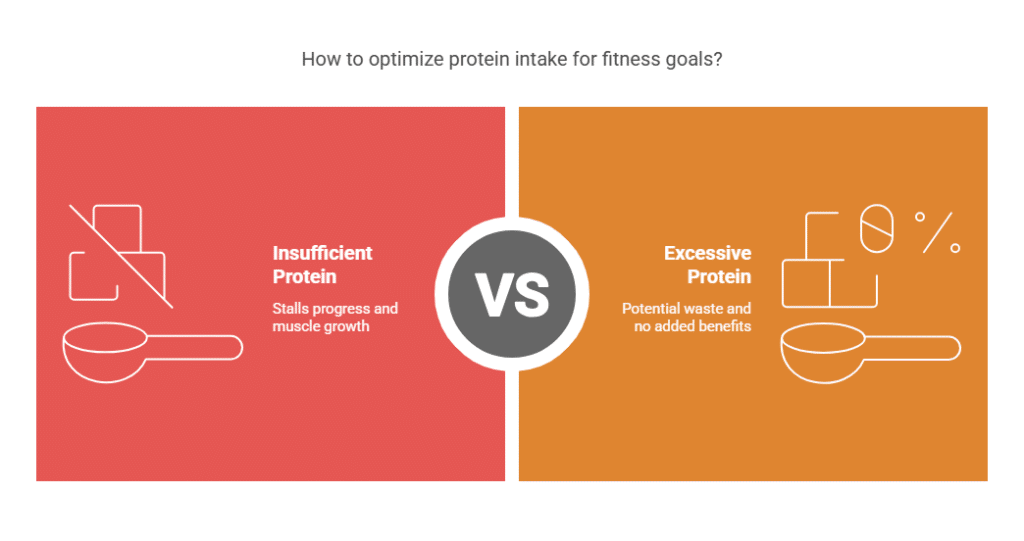
Factors That Can Shift Your Needs
Not everyone needs the same amount of protein. Here are a few things that bump your number up:
- Training intensity – Lifting heavy or working out daily? You’ll need more.
- Age – Older adults need more protein to hang onto muscle.
- Calorie deficit – Cutting weight? Increase protein to protect muscle.
- Body composition goals – Want more lean muscle and less fat? Don’t go light.
Your needs can change with your goals. Pay attention to how your body responds and adjust as you go.
Can You Eat Too Much Protein?
Here comes the good part: most people don’t need to worry. If your kidneys are healthy, eating more protein than you need isn’t dangerous it’s just not always useful. Once you hit your target, your body uses the rest as energy or stores it.
That said, there’s no need to go wild. Chugging five shakes a day won’t build muscle faster. Stick to what your body can actually use.
How to Hit Your Protein Target Without Stress
Reaching your protein goal doesn’t mean eating dry chicken five times a day. Here are some low-stress ways to get it done:
- Add Greek yogurt or eggs to breakfast.
- Keep canned tuna, deli turkey, or protein bars handy for quick snacks.
- Use protein powder when you’re short on time but don’t rely on it for every meal.
You don’t have to be perfect just consistent. Spread it out across the day, and you’ll be in a good spot.
Smarter Protein Choices That Actually Help You Build Muscle
You’ve probably heard the usual advice: “Eat more protein.” But not all protein sources hit the same way especially if you want real muscle growth without the extra fat, bloat, or hours in the kitchen.
So let’s keep it simple: here’s how to pick protein that works with your goals, not against them.
Go for Complete Protein Your Muscles Need All the Pieces
Your body builds muscle using amino acids. Some protein sources have all the ones you need (they’re called complete), while others fall short unless you combine them.
Animal proteins like eggs, chicken, fish, and krill are complete they deliver everything in one go. That’s what makes them easier for your body to use right after a workout. Plant-based foods like beans and lentils? Still solid, but you’ll need to mix them up to get the same effect.
Choose Lean and Efficient Over Heavy and Greasy
Muscle grows better when you’re feeding it clean fuel. Fatty, processed meats slow you down and add calories you don’t need.
That’s where foods like canned krill meat stand out. It’s low in fat, high in quality protein, and super light. Plus, it comes with natural omega-3s, which help your muscles recover faster and your joints stay pain-free. That’s a rare combo in one can.
Other smart options? Skinless chicken, eggs, turkey, and lighter seafood like shrimp or cod. They’re all easy to cook, easy to digest, and don’t leave you feeling heavy.
Mix Plant-Based Picks But Watch the Gaps
If you’re plant-based or just want more variety, go for lentils, tofu, quinoa, and chickpeas. Just remember: most don’t have all the amino acids on their own. Mix them up throughout the day to get what your muscles need.
No need to overthink it. Stick to clean, balanced protein, and your body will have what it needs to grow stronger without the guesswork.
Maximizing Protein Intake for Optimal Muscle Growth
You’ve got the right amount. You’ve got solid sources. But how you use that protein each day still matters. Just stuffing it all into one big dinner won’t cut it. To build real muscle, your body needs a steady stream of fuel not a one-time dump.
Let me explain how to get more out of every gram you eat.
Spread It Out Through the Day
Your body can only use so much protein at once. Eating 150 grams in a single sitting won’t give you bigger arms by morning. What works better? Split your intake across 3 to 5 meals or snacks.
That means getting protein at breakfast, lunch, dinner, and maybe once in between. It helps your body stay in “build” mode longer, instead of playing catch-up.
Get the Right Kind of Protein
Quality matters just as much as quantity. Complete proteins like those from krill meat, eggs, chicken, and dairy give your body everything it needs in one shot. Incomplete proteins (like some plant sources) are still useful but may need to be paired with others to hit the full range of amino acids.
Focus on real food first. Protein powders are fine in a pinch, but they shouldn’t be your only go-to.
Time It Around Your Workouts
Here comes the good part: your body is more ready to absorb protein right after a workout. That’s when it’s repairing and rebuilding the most. Aim for a solid protein source within 30–60 minutes post-training.
A can of krill with rice, a tuna wrap, eggs on toast keep it simple, but make it count.
Don’t Forget Carbs and Fats
Protein builds muscle, but it doesn’t do it alone. Carbs refill energy stores and help shuttle protein into your muscles. Fats support hormones that drive growth. So don’t go too low on either.
A balanced plate something like krill and quinoa with some olive oil does more than plain protein ever could on its own.
Stay Consistent, Not Perfect
You don’t need to hit every number or eat the same foods every day. What matters is showing up with enough protein, often enough, to give your body what it needs.
Some days it’s eggs and chicken. Other days it’s krill and beans. Either way, progress happens when you stay on track long enough for your muscles to notice.
Common Protein Mistakes to Avoid
You’re putting in the effort tracking your intake, hitting your workouts, eating better. But even small mistakes can quietly slow your progress. Let’s make sure you’re not tripping over the basics without realizing it.
Here are five common protein slip-ups that are easy to fix and worth avoiding.
Eating Too Much in One Meal, Then Skipping the Rest
One giant, protein packed dinner doesn’t make up for a low-protein day. Your body can only use so much at once. The rest? It gets stored or used for energy not muscle.
Spread your protein through the day to give your muscles a steady supply when they need it.
Relying Too Much on Shakes and Powders
Protein supplements are helpful but they’re not magic. If your entire diet comes from a blender, you’re missing out on key nutrients real food brings.
Use shakes when you’re short on time, but aim to get most of your protein from actual meals like krill, eggs, meat, or beans.
Ignoring Protein on Rest Days
No workout today? Your muscles are still recovering and still need fuel to grow. Skipping protein just because you’re not training slows everything down.
Stay consistent. Rest days are when the real growth happens.
Not Tracking at All (or Guessing)
If you’re not seeing results, you might be under-eating protein without realizing it. Eyeballing portions or assuming “this is enough” often leads to missing the mark.
You don’t have to log every bite forever. Just track for a few days to see where you stand it might surprise you.
Forgetting Variety
Sticking to the same chicken-and-rice combo gets old fast. Worse, it can limit your intake of other nutrients that support muscle growth and recovery.
Mix things up. Rotate in foods like canned krill, eggs, turkey, beans, and seafood. Your muscles and your taste buds will thank you.
Final Verdict
Building muscle isn’t just about lifting heavier or working harder it’s about giving your body what it needs to grow. And nothing matters more than getting your protein right.
You’ve learned why protein plays such a key role, how much you actually need, where to get it, and how to use it smartly. Real results don’t come from guessing they come from doing the basics right, day after day.
Eat enough. Choose clean, complete sources. Time it well. Stay consistent.
Whether you’re eating eggs, chicken, krill meat, or lentils if you hit your daily target and spread it out, you’re setting yourself up for real growth.
So don’t just read go eat. Your next meal could be the one that fuels your next set of gains.
Frequently Asked Questions (FAQs)
Can You Build Muscle Without Protein Supplements?
Yes, you can build muscle without protein supplements. Whole foods like eggs, chicken, fish, krill meat, beans, and dairy provide all the protein your body needs to grow. Supplements are only useful when you struggle to meet your protein goals through food.
Is Plant-based Protein As Effective As Animal Protein For Muscle Growth?
Plant-based protein can support muscle growth, but it may require more planning. Most plant sources lack one or more essential amino acids, so you need to combine different foods (like rice and beans) to make it complete. Animal proteins like krill, chicken, and eggs naturally provide the full range.
What Happens If You Don’t Get Enough Protein When Exercising Regularly?
If you don’t eat enough protein while training, your body can break down muscle instead of building it. This leads to slower recovery, muscle loss, and weaker performance over time. Consistent protein intake is key to making progress.
How Soon After A Workout Should You Eat Protein?
It’s best to eat protein within 30 to 60 minutes after your workout. This helps kickstart muscle repair and recovery while your body is most ready to use it. A quick meal with protein and carbs like krill with rice or eggs on toast works well.

